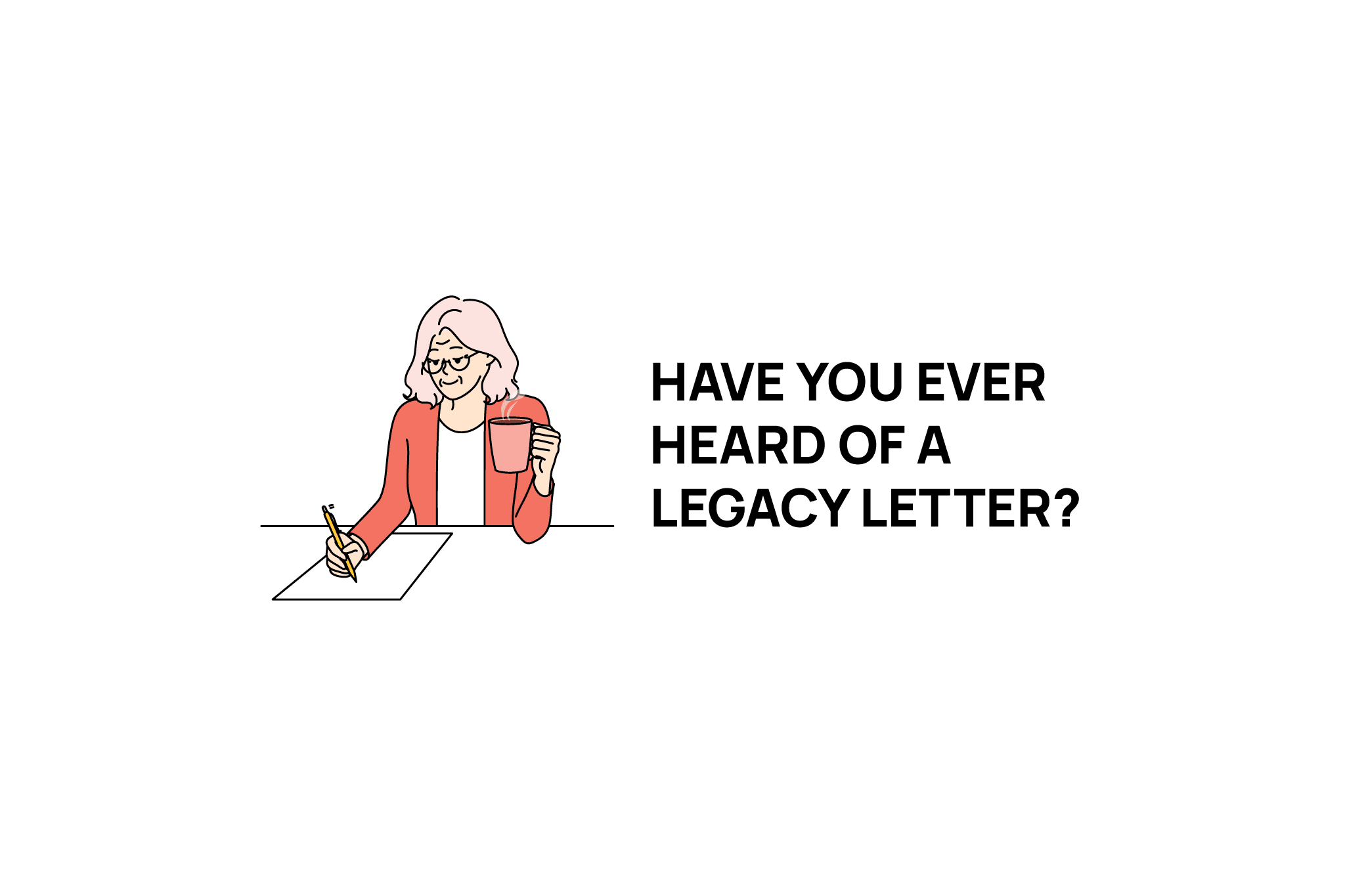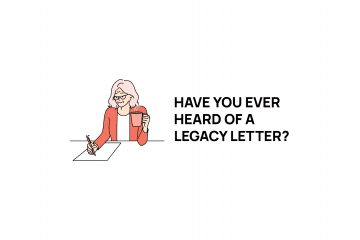Every once in a while, I come across a term that I haven’t heard before but piques my interest. Recently, this happened to me while reading an estate planning article that mentioned the concept of the ‘Legacy Letter’. I hadn’t heard of this before and thought that it sounded intriguing, so I did a bit of digging into what a Legacy Letter is and when and why someone may want to write one. It turns out that a Legacy Letter is something that you can add to your will. Sometimes it is called an ethical will; the important part is that it is not a part of the legal document itself, but rather an additional document that can accompany your will to add personal touches to an otherwise straightforward legal document. You don’t use a Legacy Letter to detail how you want your property dispersed or dependents cared for; instead, it is meant to help you capture the meaning behind your life and the reasoning for why you have designed your legal will the way that you did. I have mentioned before, taking the time to talk to your loved ones about how you want things handled when you pass away before you’re gone is the best way to do this. As a backup for this conversation, a Legacy Letter can be a valuable document to make sure your beneficiaries don’t lose sight of what you wanted to have happen and why you wanted it that way. Your only other choice is to find Whoopi Goldberg and get her to speak for you like she does in the movie Ghost. Let’s look at why a Legacy Letter is a good idea.
In This Blog:

Reasons Why You Might Write a Legacy Letter
Before we delve too deeply into this concept, it is worth reiterating that a Legacy Letter is not a legal will. While there are versions of a will that you can write yourself (known as a holographic will, and there are rules it needs to follow to be legal), we always recommend that for your actual legal will, you consult the experts, be it a reputable online provider or an estate planning lawyer. The idea behind the Legacy Letter is different. It is not to distribute your assets, but to pass on personal knowledge, information, and values. Here are some reasons you may decide to add a Legacy Letter to help capture the meaning behind your life:
- It provides an opportunity to express your personal beliefs and values. This extends beyond your material possessions and can express the things that matter most to you. Taking the time to explain what your values are and why they were important to you provides reasoning for those left behind as to why you lived your life the way you did and why your value system was so important to you.
- It can give you the chance to support grieving loved ones. Having something personal that you’ve left behind, which includes your thoughts, can be a great comfort to loved ones in a way that inheriting material possessions cannot replicate. If you took the time to write out your thoughts for someone, you are leaving them with a real way to connect with their memories of you whenever they need to, maybe even allowing them to feel like you’re still there, even after you’re gone.
- It is a way to pass on life lessons. Everyone has memories of things that they have learned over the years. For example, every time I put a nut onto a bolt, the voice of my father yells, ‘Don’t cross-thread it!’ in my mind. Being able to offer some words of wisdom that your loved ones can read and take to heart whenever needed is a timeless gift. As an example, you may have some hard-earned wisdom that would benefit future generations, allowing your loved ones to learn from your experiences. Sharing this type of knowledge and advice in a thoughtful, non-confrontational way is a wonderful gift to the future.
- It can be revisited again and again. With your legal will, your loved ones aren’t likely to turn back to it and re-read it in the future when they are missing you. A Legacy Letter can contain the messages of love and encouragement that can help people through the grieving process and be revisited many times in the future whenever those you’ve left behind feel the need to connect with you.
- You can use a Legacy Letter as a way of maintaining cherished family memories. By taking the time to write down stories from your past, you are doing your part to keep your family history alive, preserving moments that otherwise may have been lost. Again, for example, you may have cherished family traditions that you want to explain the reason behind for future generations. Taking the time to write a Legacy Letter can strengthen the identity that your family has by building stronger ties to the past.
Get a free quote
How to Write a Legacy Letter
This is the true beauty of the Legacy Letter concept. Unlike your actual will, there aren’t any legal requirements for what you put in it. The key to making it a valuable part of your estate is to ensure that it is sincere and that you write from the heart. If you want a simple framework, you could consider this as a guideline:
- Establish the purpose of the letter – openly address who you expect to receive the letter and explain why you are writing it.
- Include personal stories – this letter is about you being able to share things that are important to you personally that you want preserved for future generations.
- Add in important life lessons – if you have things that you have learned over your life that you want to share with your loved ones, you can use this as a method of doing so.
- Give hope for the future – the people who will receive the letter will be grieving when they do. Take advantage of the opportunity to offer them words of encouragement, tell them how much you love them and what you hope for their future.
- Your final thoughts – conclude your letter with more heartfelt messages that can help your loved ones navigate their grieving process. Let your personality shine through so that even in moments of sadness, they will remember you for who you were with your final words to them.
You can choose to write one letter to everyone or specific letters to individuals, and add in photos or other mementos. There really are no hard and fast rules; instead, remember why you are writing a Legacy Letter and let that guide you through the process.

Final Thoughts
When considering the idea of a Legacy Letter, remember that it is a simple concept that can have a profound impact. Taking the time to write this type of letter can be one of the most profound and emotional gifts that you can give to your loved ones. You don’t need a legal degree or any expensive planning for this. You just need to write openly and honestly from your heart. When you think about what you will leave behind for your loved ones, there are material goods, life insurance proceeds and memories of your time together. Taking the time to write a Legacy Letter can provide inspiration and comfort for generations to come. A Legacy Letter leaves behind a priceless gift, a piece of yourself that will last forever.




